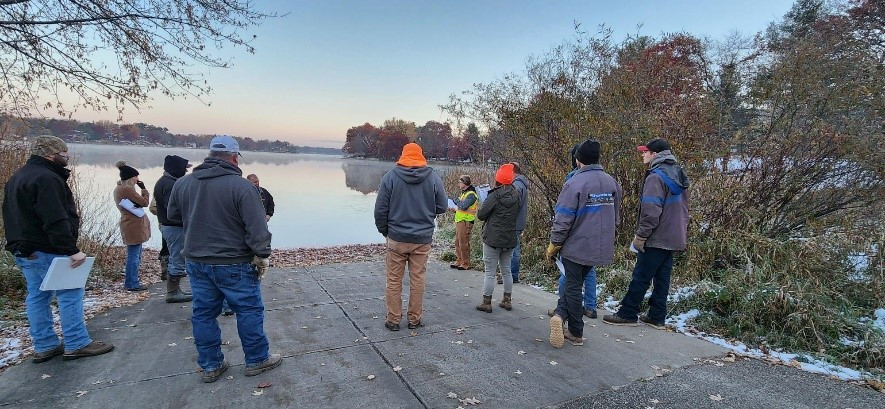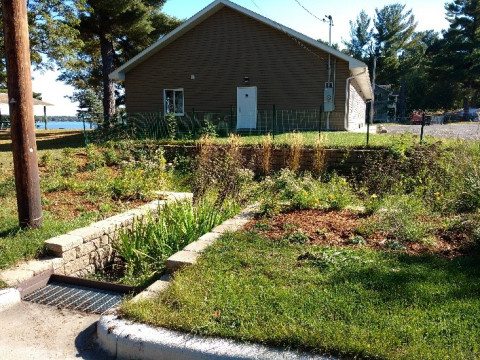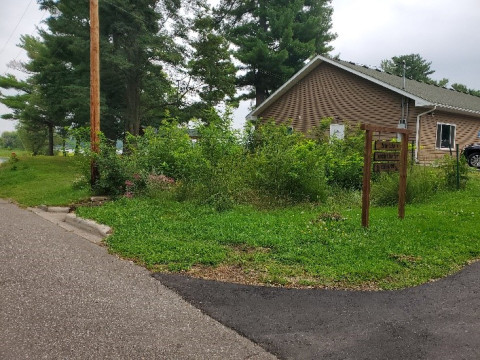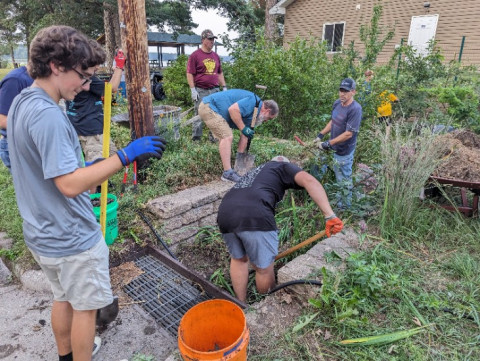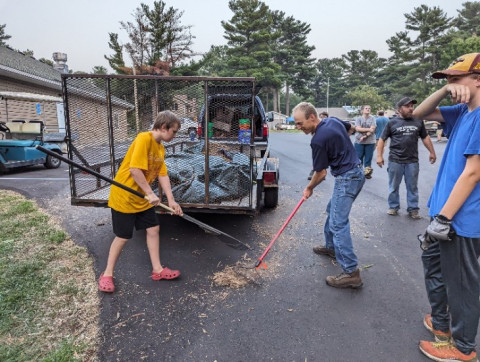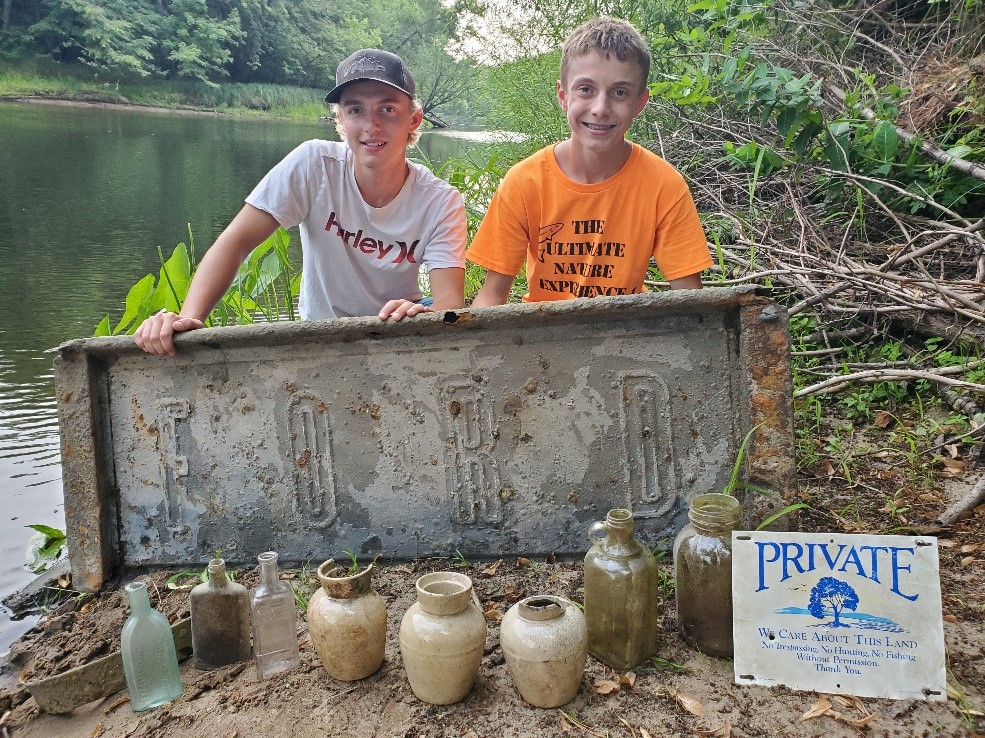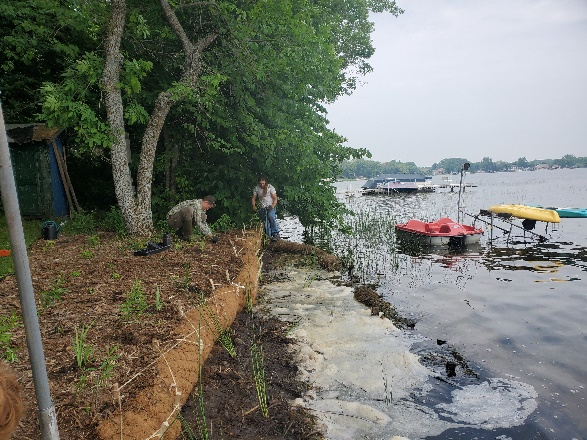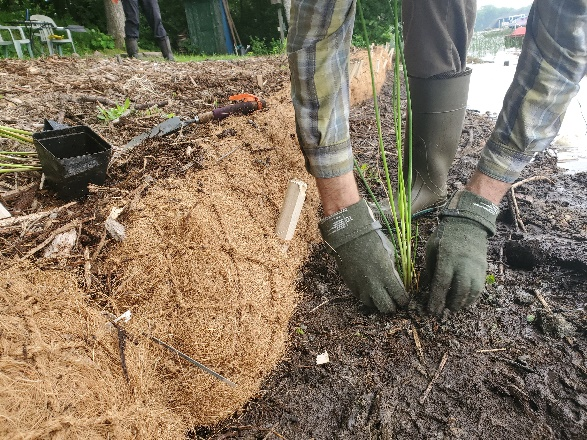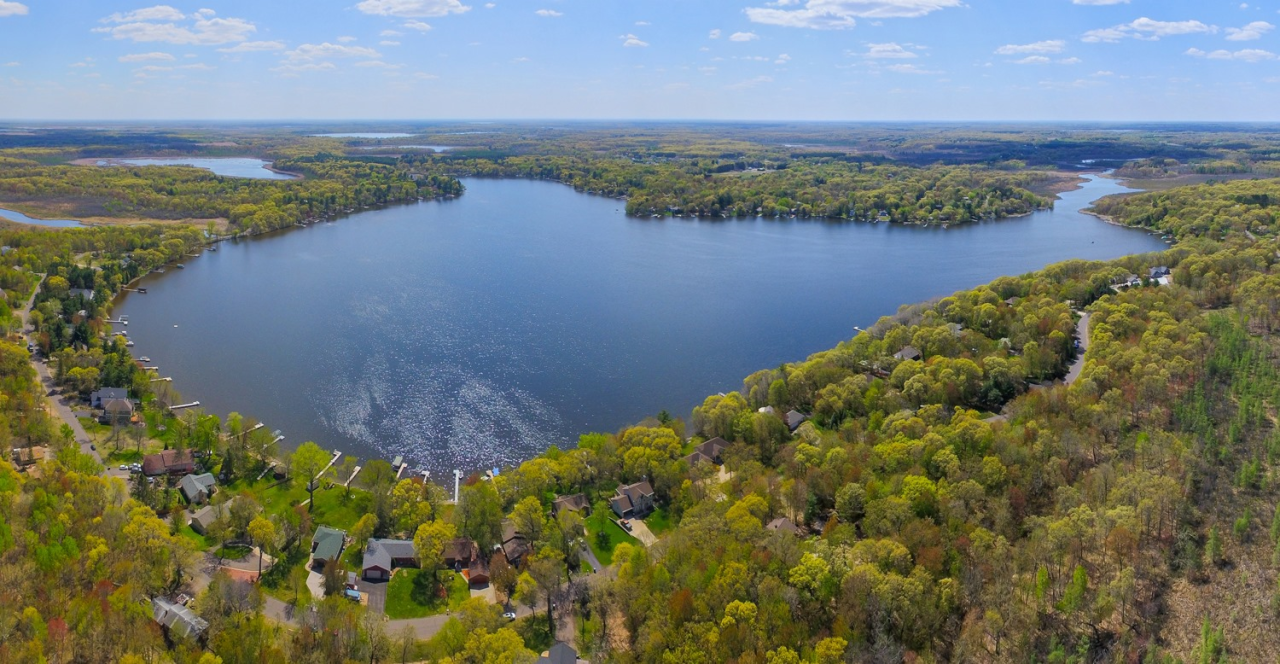Eight Martin Lake residents, in collaboration with ACD, are bundling their individual lakeshore improvement efforts into one larger project. By joining efforts, they are hoping to save money while making the work more attractive to contractors. It seems to be working, as 15 contractors joined in the bidding process!
This upcoming project is being coordinated by ACD, who has completed designs and will be providing construction management. ACD has also been able to incorporate three state grants, making the project even more affordable. In exchange, the landowners are installing lakeshore stewardship practices that go above and beyond – utilizing natural materials, native plant buffers, and aquatic vegetation for habitat. Collectively, we'll make a healthier lake.
For a fun & informative 8-minute video about healthy lakeshores, watch ACD's video "Our Lakeshore Connection." For more information contact Jamie Schurbon, Watershed Project Manager,
